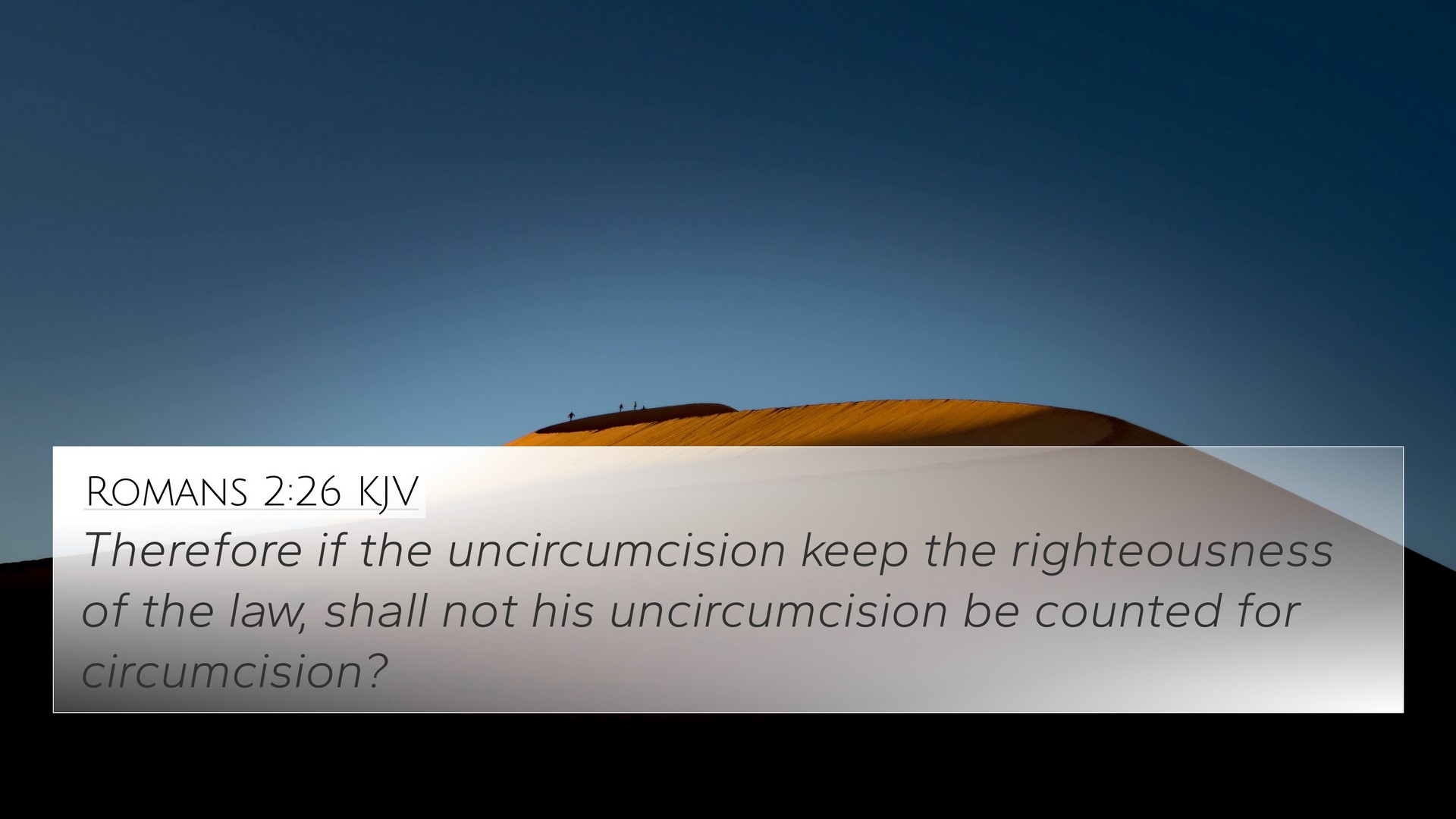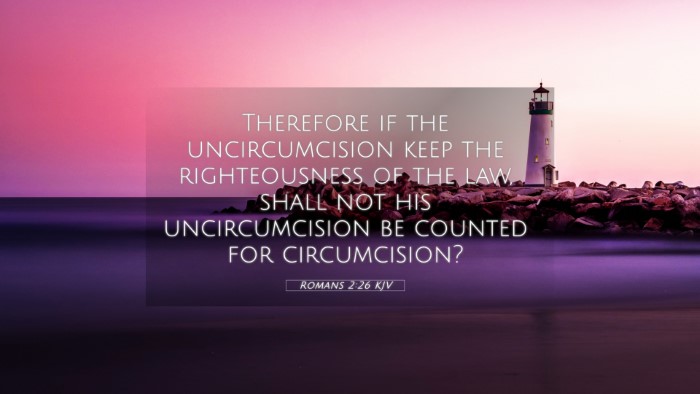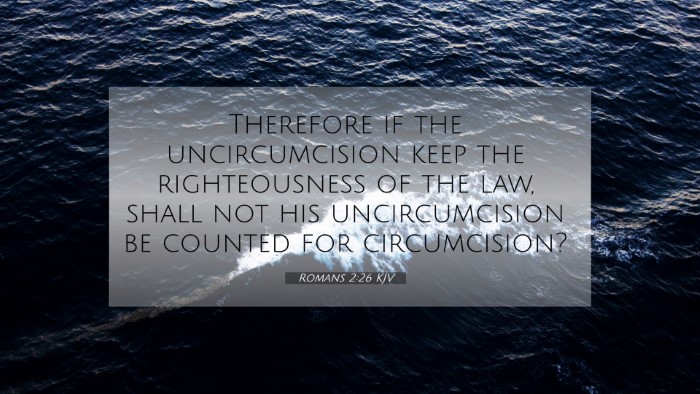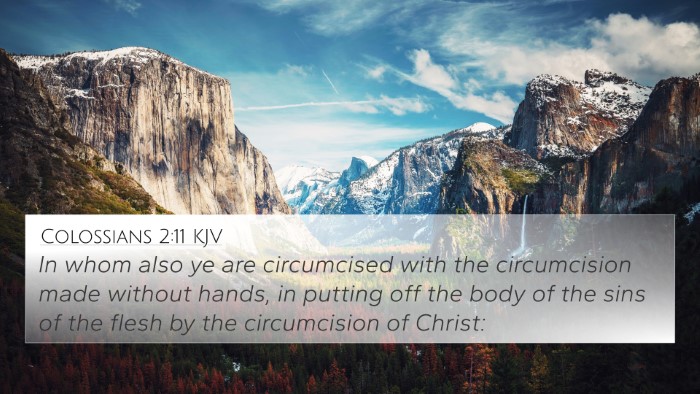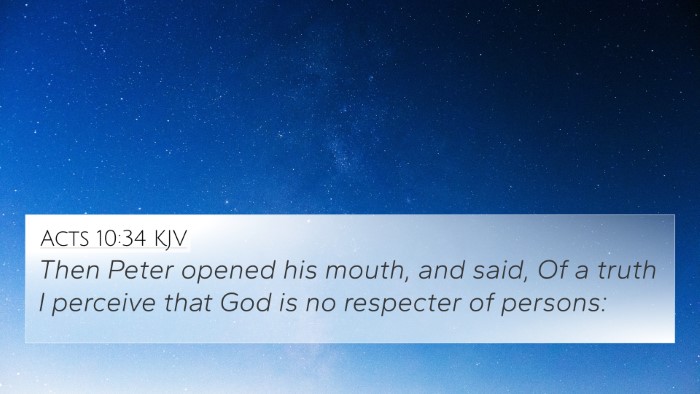Understanding Romans 2:26
In Romans 2:26, the Apostle Paul addresses the significance of righteousness among the Gentiles and how it interacts with the Law of God. This verse states:
"Therefore, if the uncircumcised man keeps the righteous requirements of the law, will not his uncircumcision be counted as circumcision?"
Meaning and Interpretation
This verse is pivotal in exploring the theme of righteousness and the implications of the Law for both Jews and Gentiles. It highlights the principle that true obedience to God's commandments is not merely a matter of physical circumcision, but a heart condition that can transcend cultural and ceremonial boundaries.
Insights from Public Domain Commentaries
- Matthew Henry: Henry emphasizes the spiritual nature of circumcision and the Law. He interprets that an uncircumcised individual can indeed uphold God's law through genuine faith and righteous actions, thus having a status before God that is equal to that of a circumcised Jew.
- Albert Barnes: Barnes argues that external symbols of faith (like circumcision) do not guarantee true righteousness. He suggests that Gentiles, who live righteously, according to God's law, are in a favorable position before God, regardless of their physical status in terms of Jewish law.
- Adam Clarke: Clarke elaborates on the concept of the inner man and points out that the essence of being counted as righteous relies on having the law written in one’s heart, rather than mere outward conformity to the Law.
Thematic Bible Verse Connections
This verse interweaves with various themes throughout the Bible, particularly emphasizing the relationships between law, grace, and righteousness. Here are several cross-references that support the understanding of Romans 2:26:
- Romans 2:28-29: Discusses true circumcision as a matter of the heart.
- Galatians 5:6: "For in Christ Jesus neither circumcision nor uncircumcision counts for anything, but only faith working through love."
- 1 Corinthians 7:18-19: Speaks on the relevance of physical status in light of being in Christ.
- Acts 10:34-35: Highlights God's impartiality toward both Jews and Gentiles who fear Him.
- Philippians 3:3: Stresses that true worshipers of God worship in the Spirit, not in physical rituals.
- Colossians 2:11: Emphasizes spiritual circumcision, which is cutting off of the sinful nature.
- Matthew 5:20: "For I say to you that unless your righteousness exceeds that of the scribes and Pharisees, you will never enter the kingdom of heaven."
- John 4:24: Describes the nature of true worshipers who worship God in Spirit and truth.
- Ephesians 2:8-10: Discusses grace and the work of God in the lives of His people.
- Hebrews 8:10: References the new covenant where God writes His laws in the hearts of people.
Connections and Cross-Referencing Biblical Texts
Many connections exist between Romans 2:26 and other passages, illuminating the broader biblical discourse on righteousness, grace, and the role of faith. Such cross-referencing provides depth to one's understanding of how God's intention transcends physical and cultural boundaries.
How to Find Cross-References in the Bible
Utilizing tools for Bible cross-referencing, such as a Bible concordance, can enhance one’s study. Engaging in a cross-reference Bible study allows individuals to see connections between verses, facilitating a comprehensive understanding of thematic Bible verse connections.
Conclusion
Romans 2:26 serves as a significant bridge in understanding the essence of spiritual obedience against the backdrop of Jewish law and Gentile practices. The combined insights from Matthew Henry, Albert Barnes, and Adam Clarke underline the necessity of a heart aligned with God’s righteousness rather than merely fulfilling religious obligations.
